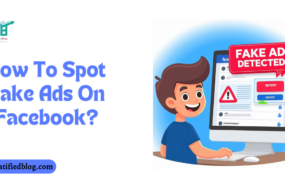
Are you intrigued by the digital world’s vast opportunities and the power of social media? If so, you’re in the right place. This guide will delve into how to start a social media marketing agency. This venture blends creativity, strategy, and business acumen to help businesses thrive in the digital age.
In today’s fast-paced and interconnected world, social media has become indispensable. Consequently, the need for adept social media professionals is on the rise, as it serves as an essential instrument for businesses to engage and interact with their desired audience. Marketers have skyrocketed, creating a lucrative opportunity for entrepreneurs with the drive and vision to capitalise on this trend.
Whether you’re a seasoned marketer looking to strike out on your own or someone passionate about social media and seeking a new career path, this guide will provide you with the essential insights and strategies to turn your aspirations into a successful reality. From assessing your skills and resources to acquiring clients and scaling your agency, we’ll cover every step of the journey to help you build and grow a thriving social media marketing agency. So, let’s dive in and embark on this exciting entrepreneurial adventure together!
Definition Of Social Media Marketing
Social media marketing refers to using Utilize social media platforms as channels to engage with your audience, strengthen your brand presence, boost sales, and direct traffic to your website.
Benefits Of Social Media Marketing For Businesses:
Increased Brand Awareness
Social media platforms give businesses a powerful channel to showcase their brand and connect with a broad audience. Companies can increase brand visibility and awareness among potential customers by regularly posting engaging content and interacting with followers.
Enhanced Customer Engagement
Social media platforms empower businesses to interact directly with their audience in real-time. Companies can foster meaningful customer relationships, address inquiries, and gather valuable feedback through comments, messages, and posts. This two-way communication helps humanise the brand and build customer trust and loyalty.
Cost-Effective Marketing
Social media typically offers better cost-effectiveness and ROI compared to traditional advertising methods. Platforms provide targeted advertising, reaching specific demographics, interests, and behaviours for higher conversion rates. Organic content also expands reach without substantial ad spending.
How To Start A Social Media Marketing Agency: A Step-By-Step Guide

- Assess your skills and resources.
- Conduct market research and niche selection.
- Build your brand and online presence.
- Set up your business infrastructure.
- Develop your service offerings.
- Acquire clients and build relationships.
- Manage and scale your agency.
Assessing Your Skills And Resources
Assessing Your Skills and Resources is the foundational stage in initiating a social media marketing agency, as it involves understanding your capabilities, knowledge, and resources to determine your readiness for entrepreneurship in this field.
- Recognize your social media strengths and weaknesses: Begin with an honest self-assessment of your strengths and weaknesses in social media marketing. Identify areas where you excel, such as content creation, analytics, or strategy development, and areas where you may need improvement, such as graphic design or advertising. This will help you leverage your strengths and address skill gaps through training or hiring.
- Evaluating your existing skillset and knowledge: Evaluate your existing skillset and knowledge in social media marketing, including your familiarity with different platforms, tools, and techniques. Consider your experience managing social media accounts, creating engaging content, running advertising campaigns, and analysing performance metrics. This assessment will help you determine your areas of expertise and identify areas where you may need to enhance your skills or knowledge.
- Determining the resources needed to start a social media marketing agency: Next, determine the resources required to start and operate your social media marketing agency successfully. This includes tangible resources such as office space, equipment, and software tools and intangible resources such as time, energy, and networks. Assess your access to these resources and consider how you can leverage them to launch and grow your agency effectively.
- Assessing your budget and financial resources: Finally, evaluate your budget and financial resources to determine your startup capital and ongoing operating expenses. Consider business registration fees, marketing and advertising costs, employee salaries or contractor fees, and overhead expenses. Evaluate your finances, savings, and potential funding sources, such as loans or investors. This assessment aids in formulating a practical budget and financial plan for starting and running your social media marketing agency.
Market Research And Niche Selection
- Conducting market research on the social media marketing industry: After assessing your skills and resources, The subsequent stage involves conducting comprehensive market research into the social media marketing industry. This involves gathering information about industry trends, market size, and key players. Understanding the broader industry landscape allows you to Spot potential opportunities and obstacles affecting your agency’s success.
- Identifying target clients and their needs: With market research data, the next step is identifying your target clients and their specific needs. This involves segmenting the market based on industry, company size, and marketing objectives. By understanding your target clients’ pain points and goals, you can effectively tailor your services to meet their needs, ensuring your agency’s relevance and appeal in the market.
- Selecting a profitable niche within the social media marketing space: Based on your market research and understanding of your target clients, the next step is selecting a niche within social media marketing. This involves identifying underserved or overlooked market segments where your agency can provide unique value. By specialising in a particular niche, you can set your agency apart from rivals and establish yourself as an expert in that area, attracting clients who value your expertise.
- Analysing competitors and identifying opportunities for differentiation: It’s essential to analyse your competitors and identify opportunities for differentiation within your chosen niche. This involves researching competing social media marketing agencies to understand their strengths, weaknesses, and market positioning. By pinpointing voids in the market or sectors where competitors need more underserving clients, you can position your agency as a leader in your niche and attract clients seeking specialised expertise and innovative solutions.
Building Your Brand And Online Presence
With your niche selected, the next step is to develop a unique value proposition for your agency.
- Developing a unique value proposition for your agency involves identifying what sets your agency apart from competitors and articulating the value you offer to clients. By clearly communicating your agency’s unique strengths and benefits, you can attract potential clients who resonate with your value proposition and are eager to work with you.
- Crafting a brand name and logo that leaves a lasting impression: Once you’ve defined your value proposition, it’s time To generate an unforgettable brand name and logo for your agency. Your brand name and logo should reflect your agency’s personality, values, and positioning in the market. By investing in solid branding, you can establish a strong identity for your agency and make a lasting impression on clients and prospects.
- Establishing an online presence through a professional website and social media profiles: To attract clients and showcase your expertise, it’s essential to establish a professional online presence for your agency. This includes creating a professional website highlighting your services, portfolio, and client testimonials. Additionally, set up LinkedIn, Twitter, and Instagram social media profiles to interact with your audience, distribute valuable content, and build credibility and trust in your brand.
- Crafting a compelling elevator pitch to attract potential clients: Finally, craft a compelling elevator pitch that succinctly communicates the value of your agency to potential clients. Your elevator pitch should highlight your agency’s unique value proposition, expertise, and track record of success. By refining your elevator pitch, you can effectively communicate your agency’s value to potential clients and generate interest in your services.
Setting Up Your Business Infrastructure

- Choosing a legal structure for your agency: When setting up your brand and online identity, it’s essential to select a legal framework for your agency, like a sole proprietorship, partnership, or another option, a limited liability company (LLC). Consider liability protection, tax implications, and administrative requirements when selecting your agency’s legal structure. Choosing the proper legal structure can protect your Assets and guarantee adherence to pertinent laws and regulations.
- Registering your business entity and securing the essential licenses and permits: Once you’ve chosen a legal structure, It’s crucial to officially register your business and acquire any required licenses and permits. You were required to operate legally in your jurisdiction. This may include registering your business name, obtaining a business license, and complying with industry-specific regulations. You can confidently avoid potential legal issues and operate your agency by completing the necessary registration and licensing requirements.
- Setting up accounting and financial systems: With your business registered, setting up accounting and financial systems to track your agency’s income and expenses accurately is crucial. This involves initiating a business bank account, establishing bookkeeping software, establishing processes for invoicing clients and managing cash flow. By maintaining accurate financial records, you can monitor your agency’s financial health, make informed business decisions, and ensure compliance with tax obligations.
- Hiring additional team members or outsourcing tasks as needed: As your agency grows, you may need to bring on board more team members or delegate tasks to meet increasing demand and expand your capacity. Evaluate your workload and identify areas where additional support is required, such as social media management, content creation, or graphic design. By hiring qualified professionals or outsourcing tasks to freelancers or agencies, you can scale your operations efficiently and deliver high-quality services to your clients.
Developing Your Service Offerings
With your business infrastructure in place, it’s time to define the services your agency will offer to clients.
- Defining the services your agency will offer: This includes social media management, advertising campaigns, content creation, analytics, and consulting services. Consider your target client’s needs and preferences when defining your service offerings, and ensure they align with your agency’s expertise and capabilities.
- Pricing your services competitively: Once you’ve defined your service offerings, you must price them competitively. Research industry standards and competitor pricing to determine appropriate pricing for your services. Consider factors such as the value you provide, your overhead costs, and your target clients’ budget constraints when setting your prices. By pricing your services competitively, you can attract clients and generate revenue while remaining profitable.
- Creating service packages tailored to different client needs and budgets: To accommodate a diverse range of clients, consider creating service packages tailored to different needs and budgets. This enables clients to select the package that suits their needs the most requirements and budget constraints. Offer tiered pricing options with varying service levels and features, providing flexibility and scalability for your clients. You can cater to a broader clientele by offering tailored service packages and maximising revenue opportunities.
- Establishing clear deliverables and timelines for each service: Finally, establish clear deliverables and timelines for each service you offer clients. Clearly outline each service package’s scope of work, expected outcomes, and project milestones. This helps set client expectations and ensures transparency and accountability throughout the project. You can effectively manage client projects, deliver high-quality results, and maintain client satisfaction by establishing clear deliverables and timelines.
Acquiring Clients And Building Relationships
With your service offerings defined, it’s time to formulate a comprehensive marketing strategy to attract potential clients.
- Crafting a marketing strategy to entice potential clients: Use digital marketing tactics, such as content marketing, advertising on social media, email campaigns, and search engine optimisation (SEO), to increase your agency’s visibility and attract leads. Customise your marketing endeavours to suit your target audience and highlight your agency’s unique value proposition to stand out in a crowded market.
- Leveraging your network and reaching out to warm leads: In addition to digital marketing, leverage your existing network and reach out to warm leads to generate business opportunities. This includes contacting former colleagues, friends, family, and industry contacts who may be interested in your services or know someone who is. Personal referrals and recommendations can be powerful tools for acquiring clients and building trust, so don’t hesitate to tap into your network to expand your client base.
- Creating compelling case studies and testimonials to showcase your expertise: To demonstrate your agency’s capabilities and credibility, create engaging case studies and testimonials highlighting your past successes and client satisfaction. Highlight specific challenges your agency helped clients overcome and the tangible results achieved through your services. By presenting actual accomplishments, you can offer evidence of your proficiency and persuade potential clients of the worth you provide.
- Establishing enduring relationships with clients through effective communication and delivering satisfactory outcomes: Once you’ve acquired clients, focus on building long-term relationships through excellent communication and delivering measurable results. Keep clients informed about project progress, respond promptly to their inquiries, and proactively address any concerns or issues. You can foster trust and loyalty by consistently exceeding client expectations and demonstrating your commitment to their success, leading to repeat business and referrals. Building solid client relationships is critical to sustaining and growing your agency long-term.
Managing And Scaling Your Agency

- Implementing project management tools and systems to streamline workflows: As your agency grows, it becomes increasingly important to implement project management tools and systems to streamline workflows and improve efficiency. Use tools like Trello, Asana, or Monday.com. By employing efficient project management systems, you can oversee project progress, allocate tasks, and foster collaboration among team members. This ensures timely, budget-conscious project completion that meets client expectations.
- Hiring and training additional staff as your agency grows: Consider hiring additional staff or contractors to meet increasing demand and expand your agency’s capacity. Evaluate your workload and identify areas where additional support is required, such as social media managers, content creators, or advertising specialists. Invest in training and onboarding to ensure new hires have the skills and knowledge to deliver high-quality client services.
- Scaling your operations while maintaining quality and client satisfaction: As you scale your agency, it’s essential to maintain quality and client satisfaction while expanding your operations. Enforce quality control procedures, including routine performance reviews and client feedback surveys, to ensure services meet or exceed client expectations. Focus on hiring skilled professionals, implementing efficient processes, and offering continuous training and assistance to sustain service quality as your agency grows.
- Adapting and continuously learning in response to shifts in the social media landscape: In the fast-paced and ever-changing domain of social media marketing, continuously learning and adapting is crucial to stay ahead of the curve. Stay updated regarding alterations in social media algorithms, emerging trends, and new technologies through industry publications, webinars, and networking events. Try fresh strategies and approaches, and remain flexible based on feedback and results. By staying agile and proactive, you can ensure your agency remains competitive and thriving in the evolving social media landscape.
Pro Tip: Tools For Social Media Marketing Agency
- Hootsuite: It is a widely recognised platform for managing social media that enables users to manage various social media channels effectively, agencies to schedule posts, engage with followers, monitor mentions, and analyse performance across multiple social media platforms from one dashboard. It streamlines social media management tasks, improves efficiency, and provides valuable insights to optimise strategies.
- Canva: Canva is a user-friendly design tool that enables agencies to create stunning visuals for social media posts, ads, and other marketing materials. With a wide range of templates, stock photos, and design elements, Canva makes it easy to produce professional-quality graphics without the need for advanced design skills.
- Buffer: Another social media management tool that simplifies scheduling, publishing, and analysing social media content. It offers post-scheduling, analytics, and team collaboration features, helping agencies streamline their social media workflows and improve content performance.
- Sprout Social: Sprout Social is a comprehensive social media management and analytics platform that provides agencies with tools for publishing, engagement, monitoring, and reporting. It offers robust analytics capabilities, including audience demographics, engagement metrics, and performance benchmarks, allowing agencies to monitor the impact of their social media endeavours and make data-driven decisions.
- SEMrush: This tool holds significant power in digital marketing, providing agencies with insights into competitors’ strategies, keyword research, and SEO optimization opportunities. It offers keyword analysis, backlink tracking, and site audits, helping agencies improve their client’s online visibility and drive organic website traffic.
FAQs
Q1. What Skills Do I Need To Start A Social Media Marketing Agency?
A. Starting a social media marketing agency requires technical skills, creativity, and business acumen. Essential skills include proficiency in social media platforms, content creation, analytics, strategic planning, and client management. Effective communication, problem-solving, and project management abilities are vital for running a successful agency.
Q2. How Much Does It Cost To Start A Social Media Marketing Agency?
A. Starting a social media marketing agency can vary depending on business structure, equipment and software needs, marketing expenses, and personnel costs. In general, startup costs can range from a few thousand to tens of thousands. Developing a thorough business plan and budget is crucial for estimating your startup costs accurately and securing the necessary funding.
Q3. How Can I Differentiate My Social Media Marketing Agency From Competitors?
A. To differentiate your social media marketing agency from competitors, focus on providing unique value to customers and establishing your agency as a frontrunner in the industry. This can include specializing in a specific niche or industry, offering innovative services or solutions, providing exceptional customer service, or showcasing your agency’s expertise through case studies and testimonials. By identifying and communicating your agency’s unique strengths and communicating them effectively, you can differentiate yourself in a competitive market and appeal to clients who appreciate your proficiency.
Conclusion
Now that you’ve gained insights into how to start a social media marketing agency, why delay any further? Take action now to turn your aspirations into reality and establish your successful agency in the dynamic world of social media marketing. Bear in mind triumph favours those bold enough to pursue their dreams with determination and diligence. Start today and unleash your potential in this thriving industry.
If you still have any questions about the topic, please leave them in the comments section. We will be happy to answer any questions.
Thanks for reading 🙂








No Comments